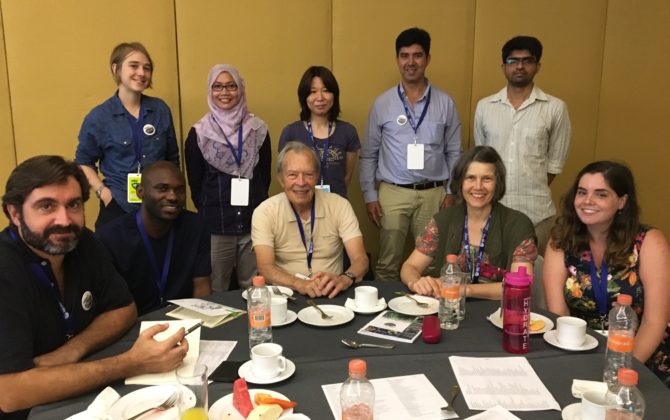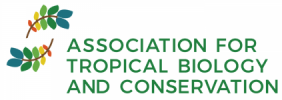By Lois Kinneen
Griffith University, Australia
I signed up to participate in the 2017-2018 ATBC Mentoring Circle program, which began at the 2017 meeting in Merida, as a way to get more out of the conference. As a PhD candidate, I am regularly reminded of the importance of networking, and this seemed like a natural way to interact with other attendees. This year, the format for the mentoring program was a little different than in years past. Mentees and mentors were assigned to groups based on their geographic region to enable monthly follow-up discussions online over the course of a year. We met twice as a group in Merida, where we introduced ourselves and got to know a little bit about each other in a relaxed and informal setting. Here, we decided on a schedule and some general ground rules for our meetings, such as ensuring we kept an open mind and respected each other’s opinions and keeping discussion topics general and not specific to any one individual. We also decided that the mentees should take it in turns to propose a topic and lead a discussion session.
The overarching aim of all of these meetings has been to provide myself and my fellow mentees with guidance
on how to best achieve our career goals in tropical ecology and conservation.
One of the best things about the mentoring program for me is how diverse my circle is; we range in experience and include PhD candidates, post-doctoral researchers, conservation industry professionals, and professors (from Associate to Emeritus). Although we are the Asia-Pacific group, we span the globe from Bangalore to Hawaii. This has meant a wide variety of perspectives on any given topic. Over the past ten months, our discussions have included: finding a position, online presence, what makes a competitive CV, organising workshops and symposiums, reviewing manuscripts, participating in successful collaborative projects and presenting at conferences. Every session has benefitted from each individual’s opinions and experiences. Yet the overarching aim of all of these meetings has been to provide myself and my fellow mentees with guidance on how to best achieve our career goals in tropical ecology and conservation, whether we aim to work in academia or industry.

One of several Mentoring Circles during the 2017 ATBC meeting in Merida.
My circle has engaged with this program enthusiastically and maintained good attendance. I think our success stems from consistency. I was asked to organise each meeting, which meant lining up mentee leaders and discussion topics, sending reminder emails, and distributing video recordings amongst the group. Personally, I have enjoyed taking an hour or so each month to discuss a different topic—it was a nice break from my PhD, and I have always come away from our meetings with a positive outlook on scientific careers. I have enjoyed listening to my mentors discussing their research and the different paths they have followed to shape their career, the values that hold importance to them, and the obstacles they have faced and overcome. I have learned a lot, both from them and my fellow mentees. Not only have I made contacts with other tropical researchers and benefitted from their knowledge and experiences, I also feel a lot more confident about engaging in discussions and approaching people at conferences. I am grateful my fellow circle members were so generous with their time and hope to meet them and others at future ATBC meetings.



